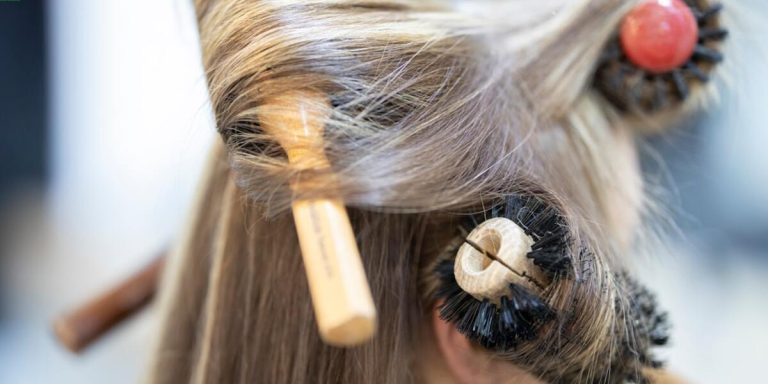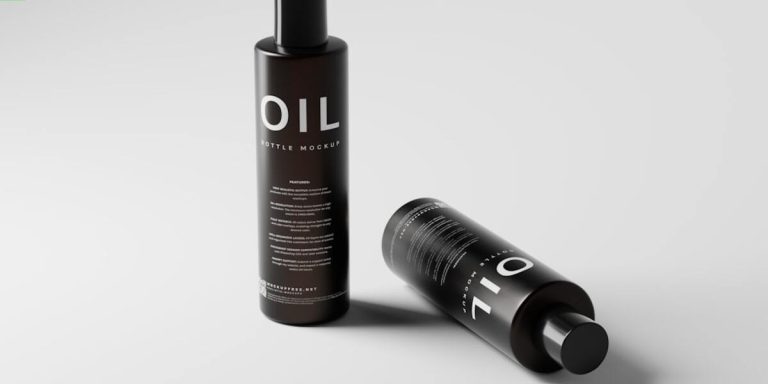PCOS Hair Regrowth: Unveiling the Journey to Natural Restoration
Understanding PCOS hair regrowth can sometimes feel like trying to unravel a mystery. The journey towards restoring your luscious locks requires patience, perseverance and the right knowledge about Polycystic Ovary Syndrome (PCOS) and its impact on follicular growth patterns. This form of alopecia is often underestimated despite it being one of the most common symptoms in women with PCOS.
This post will serve as an empowering guide for those seeking natural solutions to this challenge. We’ll explore pcos hair regrowth from different angles, delving into the connections between hormonal imbalance, insulin resistance – two key culprits behind PCOS-related hair loss – then propose holistic strategies geared at reversing these effects naturally while fostering healthier scalp environments conducive for robust regeneration.
Did you know?
Did you know? Women with Polycystic Ovary Syndrome (PCOS) often struggle with hair loss due to high levels of androgens, but reports suggest nearly 30% can effectively regrow their hair using natural methods like dietary changes and herbal supplements.
Understanding PCOS-Related Hair Loss
Polycystic ovary syndrome, commonly known as PCOS, is a condition that affects millions of women worldwide. One symptom often associated with this endocrine disorder is hair loss and thinning due to hormonal imbalance. This can be deeply distressing for many individuals afflicted by it; but understanding the connection between PCOS and hair thinning paves the way towards effective solutions.
An excess of hormones called androgens, such as testosterone, is linked to PCOS-related hair issues. Although typically male hormones, females have them too—usually at lower levels. In PCOS sufferers, the body may overproduce these substances, leading to:
- Uncontrolled weight gain
- Hirsutism (excessive facial/body hair)
With too much testosterone in your system, rather than promoting hair growth on top of your head, it stimulates shedding and leads to noticeable scalp exposure.
Identifying Signs of Hair Thinning and Shedding Due to PCOS
Hair regrowth in PCOS patients begins with recognizing the signs of hair thinning and shedding. This is not an easy journey, but your heightened awareness could be a crucial first step.
Firstly, it’s noteworthy that Polycystic Ovary Syndrome (PCOS) affects multiple areas of a woman’s life – her menstrual cycle, fertility levels, hormones, heart function and even physical appearance. One such facet is unanticipated hair loss which can incite stress among affected women.
One primary sign to look out for is increased hair fall. If you’ve been noticing more strands on your comb or pillow than usual over time – this may not just be regular shedding; rather it might indicate ongoing PCOS-related issues affecting your tresses’ vitality.
Another common symptom includes noticeable scalp visibility due to significant volume reduction at certain parts like crown area or along the parting line. While some amount of scalp peeking through healthy locks isn’t alarming per se when coupled alongside other factors such as dullness & weakening strength it becomes worthy of attention towards possible pcos related triggers resulting into what medical-speak terms ‘hair miniaturization’.
The Science Behind PCOS and Its Impact on the Hair Growth Cycle
Polycystic Ovary Syndrome, commonly known as PCOS, is a hormonal disorder prevalent among women. One of its major symptoms includes hair loss or thinning hair due to the hormonal imbalances caused by this condition.
To understand why pcos hair regrowth can often be challenging it’s important first to delve into how our natural Hair Growth Cycle functions. Each strand on your head goes through a growth stage (anagen), rest phase (telogen) and finally falls off which is called shedding phase(exogen). On average, we lose 50-100 strands each day in a healthy cycle updating with new ones regularly.
Now tieing back,it so happens that women suffering from PCOS have an elevated level of male hormones – Androgens like testosterone.These high levels affect the balance needed for normal follicle growth leading to thin shorter hairs.This disruption shortens the growing ‘anagen’ phase making hairs more susceptible and easy targets for falling out than usual thus increasing overall daily loss count.With continual imbalance,this may lead to severe cases alopecia if unmonitored .
But fear not! Thanks to modern advancements in science today there are several potential treatment plans available tailored specially keeping pcos hair regrowth in mind.
Effective Strategies for Promoting Hair Regrowth with PCOS
Polycystic Ovary Syndrome (PCOS) has been linked to a range of health issues, including hair loss. However, fear not because there are effective strategies that you can adopt today to encourage hair regrowth even with PCOS.
Research shows that hormonal imbalances associated with PCOS often lead to an increase in the production of Androgen – this is the hormone responsible for male-pattern baldness in both men and women. The good news is that changing your diet and lifestyle or incorporating specific medications can help manage these hormones thereby promoting healthy hair growth.
It’s important for individuals affected by PCOS-related hair thinning out or loss, first understand what they’re dealing with before seeking treatments. Remedies such as balanced diets rich in proteins and antioxidants combined with regular exercises have demonstrated promising results on restoring hormonal balance hence fostering healthier and stronger hairs.
In addition to dietary changes, several studies done over recent years strongly recommend prescription drugs like Minoxidil which facilitate improved blood flow around the body – subsequently nourishing follicles needed for regrowing new strands of healthy-looking hairs. Take note though: always consult your doctor before starting any medication regimen tailored towards managing symptoms related to Polycystic Ovary Syndrome (PCOS).
Lifestyle Adjustments for Balancing Hormones and Enhancing Follicle Health
Balancing hormones and enhancing follicle health can significantly provide a sustainable solution for PCOS hair regrowth. Let’s delve into several lifestyle adjustments you need to embrace.
Firstly, consider maintaining a healthy diet as it plays an essential role in hormone regulation and overall body wellness. This means incorporating more fruits, vegetables, lean proteins like fish or chicken, whole grains, nuts & seeds into your daily meals while limiting the intake of sugary foods that might spike blood sugar levels causing hormonal imbalance.
Physical activity is equally important when dealing with PCOS related concerns such as thinning hair. Regular exercise not only aids in weight management (which tends to be problematic due to insulin resistance) but also helps reduce testosterone levels — excessive amounts are often blamed for inducing female pattern baldness among women suffering from Polycystic Ovary Syndrome.
Adequate sleep shouldn’t be underestimated either; lack of proper rest could lead to various health complications including impaired glucose tolerance thus triggering insulin resistance which then accelerates hormone irregularities hindering effective pcos hair regrowth efforts.
Numerous scientific studies over the years have shown that chronic stress contributes significantly to hormonal imbalances. To make substantial progress in regaining fuller, healthier hair, even when battling symptoms associated with this condition, you must limit exposure to stressors in your lifestyle modifications plan. This condition typically features high-level abnormalities that affect the normal functioning of the reproductive system and can cause side effects beyond just losing hair on the scalp.
Medical Treatments: From Prescriptions to Natural Supplements
The journey for hair regrowth with Polycystic Ovary Syndrome (PCOS) can be challenging but effective results are achievable. With the right strategies in place, “pcos hair regrowth” isn’t a far-fetched dream.
One of the most reliable routes to restoring your lush mane is through medical treatments and these range from prescription medications down to natural supplements. Each option caters uniquely to different comfort levels and preferences, ensuring that everyone has a chance at reclaiming their crowning glory despite struggling with PCOS.
Prescription drugs form one side of this spectrum where medical professionals offer expert advice based on specific needs and conditions. These may include birth control pills meant to regulate hormones or anti-androgen medications which block DHT – an hormone often associated with hair loss in women suffering from PCOS.
Nourishing Your Scalp: Topical Solutions for PCOS-Induced Alopecia
Polycystic Ovary Syndrome (PCOS) can often lead to alopecia, a condition that triggers hair loss. This is largely due to the hormonal instability it causes in females. However, nourishing your scalp with topical solutions specifically designed for PCOS-induced Alopecia can significantly aid and promote hair regrowth.
Topical treatments play an essential role because they are applied directly onto the affected area – predominantly on the scalp where follicle health matters most when talking about hair growth or rejuvenation efforts. The right solutions have active ingredients like minoxidil which work by increasing blood flow around follicles, stimulating them while encouraging faster and healthier growth of new strands.
It’s important however not just to select any product from off-the-shelf; instead opting for proven serums geared towards battling PCOS-related alopecia is recommended. These specialized formulas tackle excessive DHT production—a major factor behind this particular form of hair thinning—and help restore balance at a cellular level.
Ensure consistency in application and be patient to see visible results over time. As you reverse impeded circulation, each strand will replenish with necessary nutrients through revitalized roots, marking a clear step forward in regaining lost hair. Remember:
- Every journey starts small but carries great hope.
- Even if progress seems slow at first, stay committed without losing heart.
- Your path towards desired PCOS hair regrowth has certainly begun!
Creating a Healthy Scalp Environment Through Targeted Products
Prioritizing scalp health is a fundamental step to facilitate hair regrowth, particularly when battling PCOS-induced alopecia. Creating a healthy scalp environment requires the use of specially targeted products designed for pcos hair regrowth.
Your scalp is the fertile ground from which your hair grows. If it’s not in optimal condition, achieving substantial growth becomes challenging. To ensure our scalps remain nourished and conducive to fostering new hair, you can:
- Keep your scalp clean to prevent clogged pores.
- Use a gentle shampoo to avoid stripping natural oils.
- Massage your scalp regularly to promote blood circulation.
- Hydrate by drinking plenty of water for a healthy scalp environment.
- Apply nourishing oils or treatments designed for the scalp.
1) Regular Scalp Massage: Manual stimulation through massage increases blood flow towards your follicles thereby supplying essential nutrients needed by them.
2) Eliminate Harmful Hair Products: Avoid hair care items laden with harsh chemicals such as sulfates and parabens; instead opt for organic or herbal alternatives.
3) Incorporate Topical Solutions Containing Minoxidil: This FDA-approved component has been proven highly effective in promoting re-growth especially among individuals suffering from hormone-related loss.
4) Use Essential Oils Known To Enhance Growth: Certain oils like Rosemary and Peppermint have shown encouraging results regarding invigoration of dormant follicles leading to increased density over prolonged usage periods.
5)) Keeping Hydrated And Well-Nourished Is Key! Adequate water intake coupled with balanced nutrient consumption acts as an internal detox facilitating better skin (scalp included), hence improving overall chances at thickening up those tresses!
Leveraging Essential Oils and Serums for Stimulating Hair Follicles
Peppermint oil is an exceptional candidate worth mentioning first among essential oils that promote PCOS hair regrowth. Studies suggest its potential capacity exceeds even Minoxidil when it comes to increasing dermal thickness, number of skin follicles and depth.
Rosemary Oil is next on our list – acting as a natural tonic for your scalp’s overall wellness while offering antimicrobial benefits along with circulatory stimulation; all critical factors promoting healthy growth patterns.
Pumpkin Seed Oil takes center stage as well due to the high amounts beta-sitosterol content which has shown promising results against pattern baldness including PCOS induced cases.
Amongst serums available readily over-the-counter or via prescription include stronger formulations like Finasteride and Spironolactone – both known for blocking testosterone reducing effects from dihydrotestosterone (DHT) – a primary contributor towards female-pattern balding experienced often during advanced stages of Polycystic Ovarian Syndrome (PCOS).
Conclusion
Embracing the challenge of PCOS hair regrowth is a journey that requires patience, persistence and positivity. The path to natural restoration may appear daunting at times but with an informed approach and consistent efforts, it’s absolutely achievable. Remember that every individual’s experience is unique – your progress might be slow or swift, a tranquil sail or scattered with storms; what truly matters in this voyage of revitalization is not to compare your story but embrace it.
As you navigate through this transformation back to fullness and volume, allow us to accompany you on your expedition. Our website abounds with resources designed specifically for guiding you down the road towards successful hair regrowth. Dive deeper into related topics filled with expert advice and insightful guidelines tailored just for someone like you who deserves encouragement on their healing trek towards restored confidence.
Don’t hesitate – begin exploring today!







